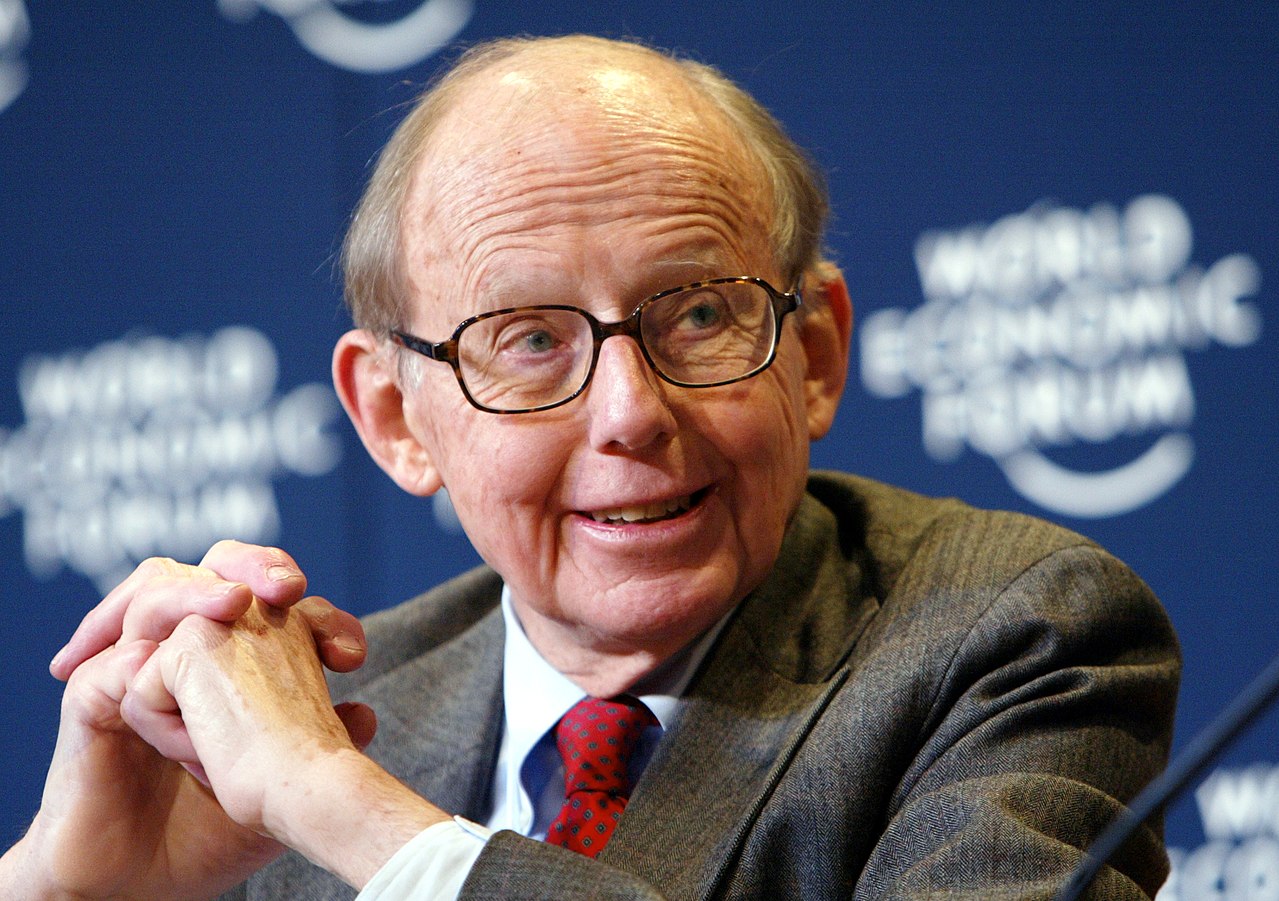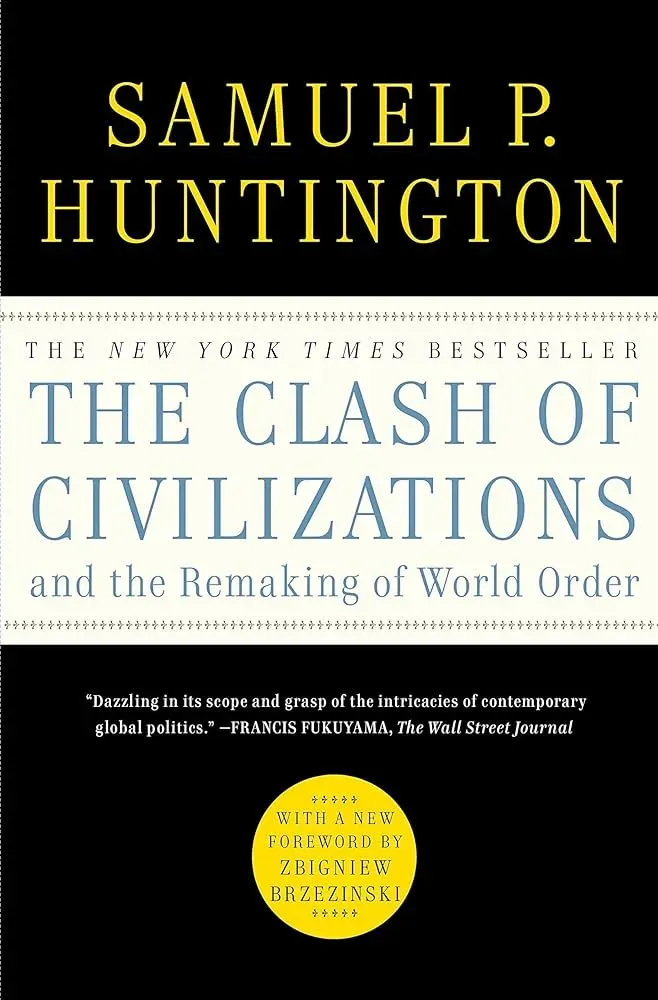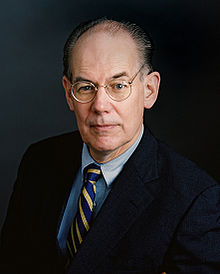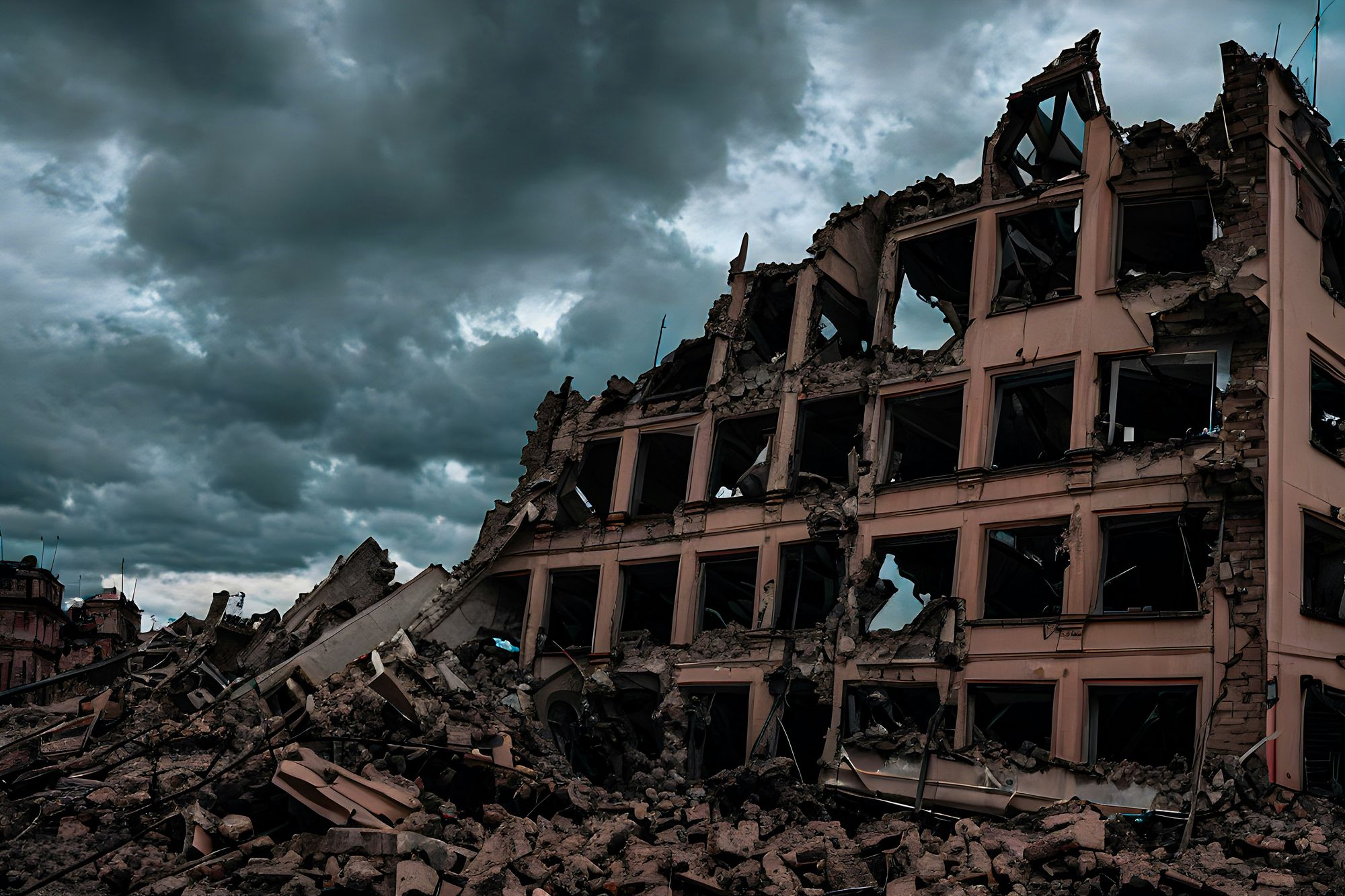Security
The World According to Realism
Realism’s central premise is that relations between states can be explained by the distribution of power in the international system.


The late political scientist Samuel P. Huntington argued in the 1993 Foreign Affairs article “The Clash of Civilizations?” (later expanded into a book with the question mark removed) that post-Cold War conflict would precipitate over differences in identity, religion, and culture. Fareed Zakaria, a former Huntington student, wrote of his mentor’s thesis, “While others were celebrating the fall of communism and the rise of globalization, he saw that with ideology disappearing as a source of human identity, religion was returning to the fore.” Huntington was writing in response to the argument of another former student, Francis Fukuyama, that a Hegelian “End of History” was upon us. In the heady days following the collapse of the Soviet Union, Huntington held the minority opinion that geopolitics and power still mattered, and worried that American foreign policy was entering a new era of history with its eyes half shut.
Stephen Walt points out that at the time of Huntington’s article liberal internationalism was ascendant, al Qaeda was a minor threat, the Middle East was healing, and America was king. Economic interdependence, global free markets, human rights, and the spread of liberal values became the foreign policy priority for Western nations. The late Kenneth Waltz observed in 1993 that the greatest threat to U.S. national security was either overextension or isolationism driven by internal preoccupation. His hope was that the U.S. would exhibit “forbearance that will give other countries at long last the chance to deal with their own problems and make their own mistakes.” Today, Russia and China are explicitly authoritarian, populism is challenging democracy from Poland to Pennsylvania Avenue, the European Union is falling apart, the U.S. is still engaged in Afghanistan and Iraq, and North Korea and Iran are continuing to pursue nuclear arms. How did these scholars anticipate our current predicament?

While Huntington was a lifelong Democrat and classical liberal, in foreign affairs he was a proponent of realism, a school of international affairs that sits outside the mainstream left-right split of domestic U.S. politics and media. Realism’s central premise is that relations between states can be explained by the distribution of power in the international system. It draws from the Hobbesian social construct of the Leviathan: absent a disinterested third-party—a Leviathan—that monopolizes the use of violence, individuals are responsible for their own security. In societies, governments play the role of Leviathan by imposing a significant enough cost on an individual’s use of violence to incentivize cooperation over conflict. Realists take this line of thinking into the domain of international relations where they argue that because no Leviathan world government exists, states are likely to conflict in their pursuit of national security. International relations scholarship, and, specifically, the theories of realism (sometimes referred to as neorealism to distinguish the modern incarnation from classic variants) extended in the works of John Mearsheimer, Stephen Walt, and the late Samuel Huntington and Kenneth Waltz provide an antidote to the glaring blind spot of the mainstream left-right split. Liberal internationalists and neoconservatives dominate the pages and airtime of major media outlets, while realism has remained what economist Eric Weinstein calls a “stigmatized narrative.” Realism offers no compelling story for what the world ought to look like, as it instead focuses on how the world actually is.
In contrast to the restraint of realists, neoconservatives and liberal internationalists support explicitly interventionist policies. Neoconservatives split the world into two (us and them, right and wrong, good and evil), and believe in the virtues of U.S. military power. They tend to perceive alternative means of diplomacy, such as negotiation, as signs of weakness. Liberal internationalists also believe in interventionism. They advocate for the global promotion of liberal values, and draw on the neoliberal school of international relations to argue that free markets, multilateral institutions, international law, and democracy incentivizes cooperation and promotes peace based on the theory of complex interdependence. Neoconservatism offers a romantic and subtly sectarian conception of the world, and so lacks the coherence to engage in substantive dialogue with realism and neoliberalism. Thus, scholarly debate occurs primarily between realism and neoliberalism over how well liberalism can effect and explain state behavior. While realists are often classic liberals domestically, they believe internationally that the way toward a more open, prosperous, and just world is not through regime change, nation building, foreign-domestic meddling, or a reliance on international institutions. Realists instead believe that “carrots” like the UN, WTO, and IMF matter only insofar as their stipulations are tied to the “sticks” of military force exercised by individual member states or by balancing member coalitions. In realist thinking, the fact that Enlightenment values are the values best suited to human well-being does not change how states feel about their own safety and security in the international system, and does little to determine how they will react or respond to international events.

Realists argue that interventionists are playing a fool’s game as the only logical conclusion on offer for a country like the U.S. is global hegemony, which is intrinsically unstable given the time and resources necessary to police the world. Realists suggest that the U.S. would be better off employing a “pull” rather than “push” strategy. By setting a good example at home, the U.S. would draw more states into its sphere of influence as foreign powers observe the political and economic payoffs of free markets, openness, and rule of law. The net outcome of realism’s narrow focus on power and security is that it counterintuitively promotes greater peace and stability the world over. It accomplishes this directly firstly, as John Mearsheimer points out, by limiting conflict and intervention to a small number of regions of strategic importance. For the U.S. this means Europe, Northeast Asia, and the Persian Gulf. (Neoliberalism and neoconservatism in contrast see the entire world as a potential battlefield.) Secondly, realists understand that if any given power gets too far out of line, other states will unify against that power in the form of a balancing coalition. Neoliberalism and neoconservatism tend to ignore this fact as it does not fit well into arguments that champion international institutions. Finally, realists perceive war as a domain of last resort and the arena of unintended consequences. As Marc Trachtenburg writes, “serious trouble developed only when states failed to act in a way that made sense in power-political terms.” In contrast, neoliberals and neoconservatives are often willing to act abroad independent of immediate U.S. strategic interest. So realists ultimately anticipated that the U.S. would continue to use military force abroad, and also put forth as a second possibility a turn toward isolationism, which seems to be on offer with Trump’s current policy agenda.
In contrast to neoliberalism and neoconservatism (which sees U.S. engagement as generally good) and realism (which tends to suspend judgement), the most explicitly anti-interventionist school of international relations is critical theory. Noam Chomsky is perhaps the most well-known proponent of this school, which includes Marxists, post-Marxists, and postmodernists. Each offers a critique on how capitalist states or capitalism itself disempowers and enslaves large segments of the world’s population through politics, economics, military capabilities, or language and discourse itself. Because critical theory yields no concrete recommendations on how policy should be made and implicitly or explicitly calls for global revolution, it is a dissident minority in the field and was empirically discredited even before the collapse of the Soviet Union.

It is worth noting that the person most affiliated with interventionism, war, and foreign meddling, and, ironically, realism is Henry Kissinger. While Kissinger used realist principles to successfully open China and establish direct communications with Moscow, he failed to heed realism’s sensitivities to foreign engagement. He was often penny-wise and pound-foolish in the application of its principles. While Kissinger supported the Vietnam War and the 2003 invasion of Iraq, realists in the 1960s discerned no strategic interest for the U.S. in Vietnam and opposed intervention. Realists were also skeptical of violating Iraq’s sovereignty and pursuing regime change and in general opposed invasion. Of the major conflicts of modern U.S. history, realists have either cautioned against, or outright disagreed with, all of them—Korea, Vietnam, Afghanistan, and Iraq each began with broad public support and ended in domestic public discord and general embarrassment. Kissinger’s realism is evidenced mostly through his academic works and writings, where his tenure as a practitioner of foreign policy defies such clean categorization.
Examining the past through a realist lens gives us a better sense of how we got to where we are today, and how tomorrow is likely to look. Stephen Walt has done an excellent job detailing the implications of realism on the world in his Foreign Policy column, “What Would a Realist World Have Looked Like?” Realists look at North Korea and Iran’s nuclear programs and observe their seemingly irrational pursuit of arms as a logical deterrent to the United States. The U.S. policy of regime change and invasion provokes these countries to respond by shoring up their defenses. They regard the U.S.’s military dominance with suspicion and question why they are the ones asked to disarm in exchange for potentially hollow assurances. Realists discern how Western Europe sought balance against Soviet influence during the Cold War through the EU, but aspirations for a collective European identity began to fray once the Cold War was over. European nationalism, as a result, has returned with vengeance. Realism sees in Russia a country responding rationally to the build-up of military capabilities along its borders. The U.S. and its European allies have been expanding NATO eastward throughout the past two decades despite warnings from Moscow. By 2013, the United States and the EU sought to pull Ukraine into closer alignment with the West. This led to interference in Ukraine’s domestic political processes and questionable transgressions of agreements signed at the close of Cold War hostilities. Vladimir Putin in turn seized Crimea, an illegal but unsurprising—to realists—reaction.
Finally, realists see in China a rising power that, while weak, made the right noises and passively acquiesced to Western-liberalism. Today, China is strong, and has become more explicitly authoritarian in both its rhetoric and actions—it no longer tries to placate the West and instead seeks to establish regional hegemony in its hemisphere. Its ascendant power foretells future security dilemmas and conflict with the U.S. and its allies. It is a not unlikely possibility that China will replace the Soviet Union as the second pole in international affairs and return the international system to a bipolar structure, just as realists would predict.
In 2016, Ayaan Hirsi Ali said of Huntington’s thesis, “There’s no other thinker to this day that has challenged it… There you see, the clash between the world as it is and the world as it should be. The work Sam Huntington was doing was describing the world as it is.” No theory of social science is perfect, but the results of recent U.S. policy seem to demand new insight. It may be incumbent upon free-thinkers to breathe life into the ideas of realism. We need foreign policy of a realist bend that is compassionate, and prioritizes the values of liberalism and democracy in foreign relations while also acknowledging the limits and geopolitical consequences of extending U.S. power. Realism shows that trying to transform world politics unilaterally produces unintended consequences and often fails as a strategy. Rather, incremental behavioral change of adversaries through influence and persuasion, a focus on domestic realities, a strengthening of the fabric of civil society, increased spending on education, infrastructure, and research and development, and a gradual transition of authority and security responsibility to U.S. allies abroad would help us contend with the world we are living in. Let us hope that we might continue to steward our world toward a future that accords with, as Steven Pinker has written, the better angels of our nature.
Author’s note: Much of this article draws on the scholarship of preeminent academicians. I have cited several authors throughout, but encourage the reader to explore the works of John Mearsheimer and Stephen Walt, arguably today’s leading realist thinkers. Their Foreign Policy article, “One World, Rival Theories” provides an excellent overview of the field of international relations.






